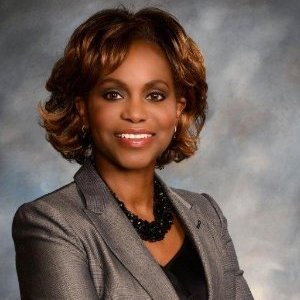Raymond J. Grace, a longtime leader in the nonprofit fundraising sector, died this morning (April 14) after a battle with esophageal cancer. He was 65.
He died at home surrounded by his family. Grace is survived by his wife, Marie, three children and four grandchildren.
He was diagnosed last year and underwent surgery, chemotherapy and radiation at the Johns Hopkins Hospital in Baltimore, Md. He had gone into remission but the cancer came back aggressively a few months later. He had been at a nursing facility but his family moved him home for better, hospice care.
“Ray always walked it like he talked it — we are all here to serve and service to charities as a career is a high honor. He built a company based on that credo and he lived it every day he worked there,” said Geoffrey W. Peters, president and CEO of CDR Fundraising Group.
“It is a privilege and an honor to be able to call Ray my friend. I could never repay the debts I owe him except to do the best I can to live like he did — always putting first that which is the greater good,” said Peters.
Born in 1944, Grace grew up in the Washington, D.C. He graduated Gonzaga College High School in 1962 and joined the United States Navy Construction Battalions, known as SeaBees, serving during the Vietnam War. After returning in 1968, Grace worked for a vertically-integrated direct mail company that had a letter shop and data processing company.
Grace co-founded Creative Direct Response with Jerry Kennedy in 1982 after making an offer to buy out the small creative and list part of the company. Grace managed Creative Direct Response, which later became CDR Fundraising Group, until 2004 and worked part-time with organizations until last year.
Clients and colleagues alike will remember Grace for what he contributed to the direct response field and to their personal lives.
Douglas Franklin, president and chief executive officer of the Multiple Sclerosis Association of America in Cherry Hill, N.J., said he remembered walking into Grace’s office to see a six-foot cardboard cutout of John Wayne. Franklin said that John Wayne cutout symbolized Grace. “Always leading, always charging forward to take on challenges, always honest and resolute in seeing things through to their rightful conclusion,” Franklin said about Grace. “He was ‘The Duke’ of the nonprofit sector.”
“Ray was a unique individual. They truly did break the mold. He was generous to a fault with his time, his expertise and his money, which he donated to charities. He lived his life as a model for other professionals, reminding us that service to charities, as a career is an honor,” said Peters.
“The thing about Ray was that he never stayed mad at you,” said Paul Clolery, vice president and editorial director of The NonProfit Times. “He and I got into some real knockdowns but the next day it was as if it never happened.”
“Ray Grace was not just a fundraising consultant or service provider,” said Sister Georgette Lehmuth, OSF, president and CEO of the National Catholic Development Conference. “He was a friend and mentor to the fundraising community. He was able to help us all appreciate our own missions and causes better. He will be deeply missed by those who knew him. His presence among us has made a difference in our fundraising world. And isn’t that what our organizations are really all about? Thanks, Ray. God speed.”
Rod Taylor, co-principal of the CDR Fundraising Group member New River Communications in Lauderhill, Fla., remembered one instance of constructive criticism. Grace told him to get a haircut and buy a tie after visiting a client. Taylor quoted a song by Drive-By Truckers: “Everything comes down to what they say about you when you’re not around.”
Grace worked on a wide range of fundraising clients, such as Catholic-related charities, health groups, animal welfare causes and social advocates. Grace, with his military background, also championed for veterans’ organizations such as Blind Veterans Association, Help Hospitalized Veterans and Vietnam Veterans Memorial Fund.
Ret. Col. Gorham L. Black, III, director of Help Hospitalized Veterans headquartered in Winchester, Calif., met Grace during a trip to Vietnam in 2000 and described him as “the type of person you couldn’t help but like.”
Said Col. Black, “God is going to bless him because he is just a gracious human being.”
Nick Ellinger, vice president of strategic outreach at Mothers Against Drunk Driving (MADD) in Irving, Texas, described Grace as a “kind and gentle man who wanted nothing but the best for those of us in the sector and for the world at large.”
Grace worked with MADD for more than 25 years, bringing the organization from exclusively telemarketing campaigns to direct mail and ushering in the transition to email campaigns. “Even when he knew and everyone knew he was sick, he was coming out of retirement to help with the organizations he really believed in – and we find ourselves privileged to be one of those,” Ellinger said.
“A lot of our success was due to his efforts,” said Charles (Chuck) Hurley, MADD’s CEO. Hurley said Grace’s work with the organization “helped MADD save many lives.”
Grace was also a founding member of the Association of Direct Response Fundraising Counsel and the business advisory council of the National Federation of Nonprofits, which merged into the DMA Nonprofit Federation on July 1, 2000. He received countless awards for his work, including the DMA Nonprofit Federation’s 2005 Max L. Hart Nonprofit Achievement Award
When word got out that he was gravely ill, friends and family posted information on a Caring Bridge Web site, which was visited nearly 5,000 times by friends and colleagues posting messages of support, even as news was getting worse. His family would print out the postings for him to read.
“You were a pioneer in fundraising in so many ways and so many people have benefited from your wisdom, work and counsel,” wrote Paulette V. Maehara, president and CEO of the Association of Fundraising Professionals in Arlington, Va.
“It was clear to me from our first meeting that [Grace was] the genuine article – a man of vast industry knowledge with a solid history of integrity in the marketplace. [His] early advice and counsel is directly related to our success and ultimately the welfare of our nation’s wounded warriors and their families,” wrote John Melia, founder of Wounded Warrior Project, in Jacksonville, Fla.
“We will miss him very much, but we are heartened by the industry-wide reactions to his illness and the many hundreds of cards, messages, postings on the Web site and telephone calls that have been made to help him and his family through this difficult time,” said Peters.
“While we, of course, are hearing a lot of condolences, we have been hearing from a lot of folks in the industry who just wanted to let us know how Ray had helped them out,” said Peters. “That is a legacy we should all aspire to.”
A viewing will be held on Thursday (April 16) from 6 to 8 p.m. at Holy Family Church located at 826 Central Ave., Davidsonville, Md. Grace’s funeral is scheduled for Friday (April 17) at 11:30 a.m., also at Holy Family Church. In lieu of flowers, Grace’s family asks that contributions be made to The Carmody Open, care of Gonzaga College High School, located at 19 Eye Street NW, Washington D.C., 20001.











